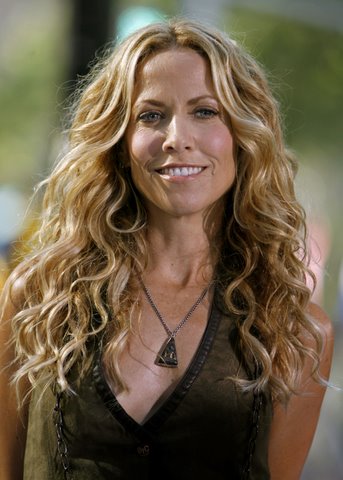
Editor’s Note: Musician Sheryl Crow describes her Enough Moment and how lessons learned from inaction in Rwanda motivated her to take part in the conflict-free movement.
My Enough Moment occurred when I traveled to Bosnia with the first lady at that time, Hillary Clinton. She asked me if I would go and entertain the troops, and I have always been 100 percent behind entertaining our soldiers. When we went, I was heavily impacted by what I saw in that war- torn area and by our commitment to ending the Bosnian war. But when I came home, there was so much coverage about the genocide in Rwanda, and nothing was being done to stop it. I was ruminating and reflecting on my trip to Bosnia, but everything I kept seeing on TV was about Rwanda. I could not get it out of my head that the perpetrators demolished entire communities in Rwanda—a full-on genocide—and we didn’t do anything but turn a blind eye. Yet we were spending all this money in Bosnia. I didn’t understand the difference. In both places, people were suffering, but we were responding only in one place. Here was a whole country torn apart by genocide. And we didn’t do anything.
Much later on, I was at a birthday party for President Clinton, and he spoke about Rwanda, about how it was the one thing during his time as president from which he could not escape his guilt. Feeling as though he had had an opportunity to stand up, but instead the issue got swept under the rug. I feel that it’s just such a dark spot on our history, the fact that we didn’t step up and do something about the genocide in Rwanda. Watching what’s happening in the Congo now, I feel we just can’t let that happen again. Especially when we know what we know. And I think everyone has that Enough Moment, when you know what you know, and you have a choice to go forward and ignore what you know, or to do something about it. And there is a lot of responsibility with knowledge, but it’s what creates the urgency to act.
I got the opportunity to hear a Congolese refugee speak at an event we did at the House of Blues in Los Angeles. Her name is Rose Mapendo, and she spoke about her experience there, which was devastating. And John Prendergast talked that night about the electronic gadgets we use every day and their connection to the violence in Congo. And I couldn’t feel good about carrying a gadget that is causing someone else’s pain or devastation unless I was prepared to do something about it. This phenomenon in the Congo is different because it’s not something that has been a huge issue in the media despite the numbers of dead. Living the kind of life I am living, I generally feel that I have a responsibility to people who do not have as much as I do. I have a family, I have food, I have transportation. I think that there is a movement across the board where we are feeling much more conscious about the fact that millions of people are suffering and we have a responsibility to respond.
It’s compassion-based decision making. I think that once people start becoming conscious of goodness with compassion, then it becomes very difficult to not factor that in when making decisions. If you know wrong from right, then you know when you are making a wrong decision. And people are becoming much more conscious about what it means to live in spiritual alignment. It becomes not only motivating but also a part of the way you choose to live.
I think people are much more aware of where they spend their money, and what effect their purchases can have. And that’s why I keep thinking that something’s got to happen on the conflict minerals front in the Congo. If I can buy a cell phone that is conflict free, then I am going to opt to do that over buying the one that is going to cause someone else distress. So it’s just got to happen. We gotta make it happen.
This is an abbreviated excerpt of Sheryl Crow’s Enough Moment. The full version is published in The Enough Moment, a book by John Prendergast and Don Cheadle about engaged citizens – known and unknown, in the U.S. and abroad – who are mobilizing to help end genocide, rape, and the use of child soldiers in Africa. Visit the Enough Moment Wall to hear people describe their “Enough moment” and to upload a video, photo, or written testimonial of your own.
Photo: Sheryl Crow (AP)

